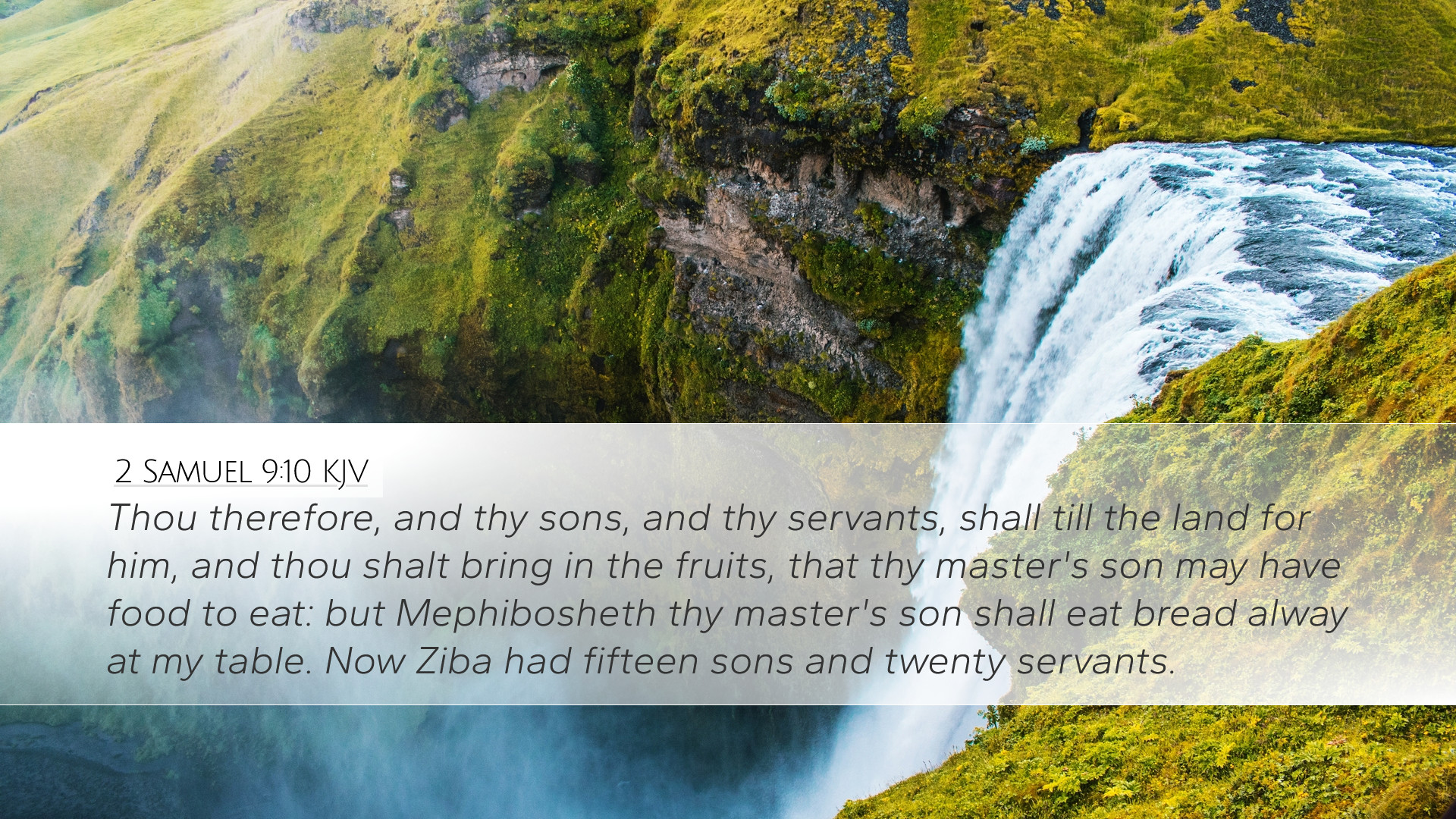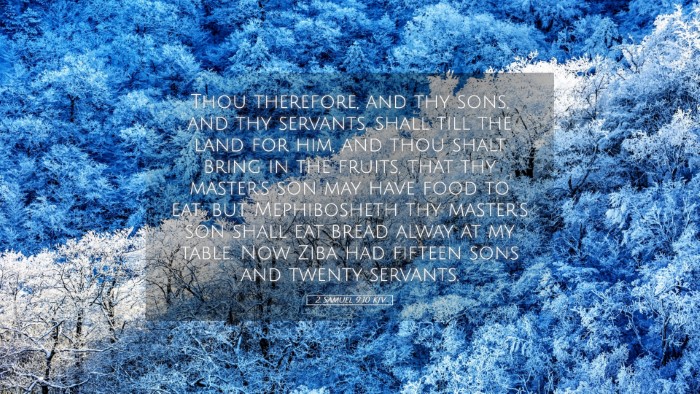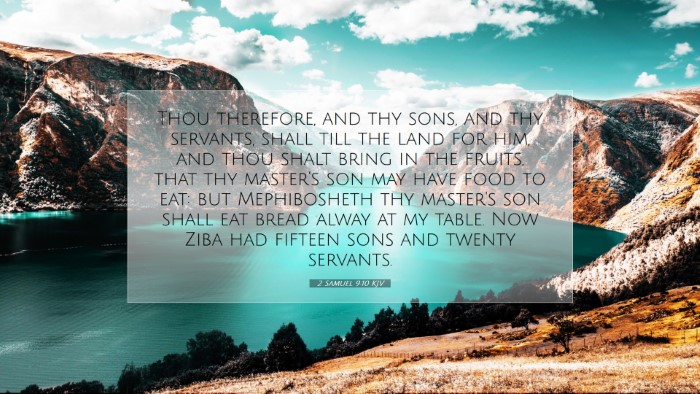Old Testament
Genesis Exodus Leviticus Numbers Deuteronomy Joshua Judges Ruth 1 Samuel 2 Samuel 1 Kings 2 Kings 1 Chronicles 2 Chronicles Ezra Nehemiah Esther Job Psalms Proverbs Ecclesiastes Song of Solomon Isaiah Jeremiah Lamentations Ezekiel Daniel Hosea Joel Amos Obadiah Jonah Micah Nahum Habakkuk Zephaniah Haggai Zechariah Malachi2 Samuel 9:10
2 Samuel 9:10 KJV
Thou therefore, and thy sons, and thy servants, shall till the land for him, and thou shalt bring in the fruits, that thy master's son may have food to eat: but Mephibosheth thy master's son shall eat bread alway at my table. Now Ziba had fifteen sons and twenty servants.
2 Samuel 9:10 Bible Commentary
Commentary on 2 Samuel 9:10
2 Samuel 9:10 states: "And thou shalt eat bread at my table, continually."
Contextual Background
This verse occurs in a pivotal moment within the narrative of David's reign. After establishing his kingdom, David seeks to demonstrate kindness to the house of Saul, his predecessor. In this historical context, the act of showing kindness holds significant weight due to the longstanding conflict between David and Saul's lineage.
Matthew Henry's Insight
Matthew Henry emphasizes the grace and mercy that David extends towards Mephibosheth, Jonathan’s son. He notes that this act of kindness reflects God’s grace towards humanity. Just as Mephibosheth, who was crippled, was invited to David’s table, so sinners are invited into fellowship with God despite their inadequacies.
- Theological Significance: Henry draws parallels between David’s invitation and God’s invitation through Christ, suggesting that all believers are welcomed at the heavenly banquet irrespective of their past or present state.
- Kingly Grace: He points out that David's decision was not politically motivated but rather borne out of his covenant with Jonathan, indicating the depth of true friendship and loyalty.
Albert Barnes' Commentary
Albert Barnes highlights the implications of David's promise to Mephibosheth as a testament to divine grace and the importance of honoring covenants made. He asserts that this act serves not only as a personal kindness but also as a political statement, reinforcing stability and unity in the kingdom.
- The Covenant Relationship: Barnes notes that the promise made to Jonathan is fulfilled in a way that demonstrates David’s integrity and faithfulness, characteristics essential for a leader.
- Public Perception: He reflects on how David’s act may have been perceived by the people, as it showcases a compassionate ruler who values loyalty and kindness, thus encouraging loyalty among his subjects.
Adam Clarke's Analysis
Adam Clarke brings attention to Mephibosheth’s physical condition, indicating that his disability does not restrict him from receiving the king’s favor. Clarke views this as an illustration of God's embrace of the weak and marginalized.
- Symbol of Grace: He highlights how Mephibosheth’s presence at the table symbolizes the unconditional love and grace extended to all, regardless of one's circumstances.
- Moral Lesson: Clarke encourages readers to emulate David’s kindness in their own lives, promoting the idea of compassion towards those who may be viewed as 'less than' in society.
Application for Modern Readers
The themes found in 2 Samuel 9:10 hold profound implications for contemporary believers, especially for pastors, students, theologians, and Bible scholars.
- Compassionate Leadership: Leaders are called to reflect Christ’s love in their roles. David’s model encourages empathy and kindness towards those who are vulnerable.
- Welcoming the Marginalized: The example set by David invites contemporary congregations to create inclusive environments, welcoming those who may feel alienated or unworthy.
- Covenantal Love: Understanding the depth of covenant relationships can inform our approach to community, urging believers to be faithful and steadfast in their commitments.
Conclusion
The act of inviting Mephibosheth to eat at David’s table is not merely a historical account; it is a testament to the nature of grace, kindness, and the fulfillment of covenantal loyalty. As believers reflect on this verse, they are reminded of the importance of extending love and acceptance in their communities, embodying the spirit of Christ who invites all to partake in His blessings.


